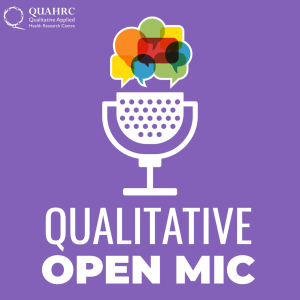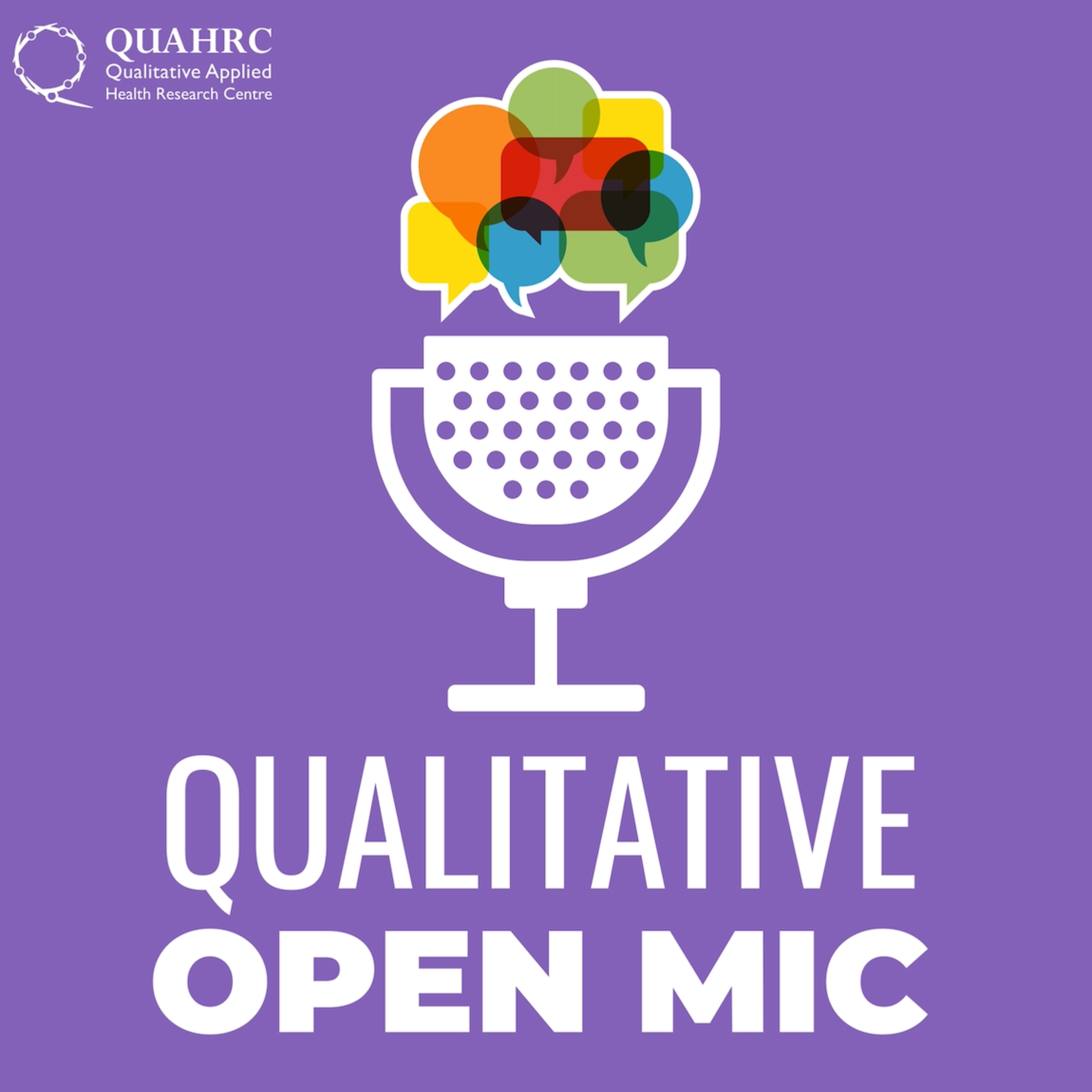Episodes

52 minutes ago
52 minutes ago
Autoethnographers use their personal experiences to explore wider issues, relationships, or situations. So what happens if you experience the world differently? Sohail speaks to Dr Elizabeth Hauke about autoethnography, inclusive education and assessment, and denormativising the university.

Wednesday May 21, 2025
Neurodiversity Matters: Hannah Belcher on (un)masking and mental health research
Wednesday May 21, 2025
Wednesday May 21, 2025
Sohail interviews Dr Hannah Belcher, author of Taking off the Mask and lecturer in user-led research at King's. They cover some of the ethical complexities of the neurodiversity framework; how the specifically gendered nature of mainstream autism research has overlooked the experiences of women and non binary people; and how all this plays into issues around masking, social pressure, and mental health.

Wednesday Apr 16, 2025
Neurodiversity Matters: Morénike Giwa Onaiwu on antiracist advocacy
Wednesday Apr 16, 2025
Wednesday Apr 16, 2025
Has qualitative research been complacent about its ability to highlight marginalised perspectives? Sohail speaks to Dr Morénike Giwa Onaiwu about forthcoming anthology "Neurodiversity en Noir" and platforming Black neurodivergent voices.

Wednesday Mar 19, 2025
Neurodiversity Matters: Monique Botha on funding priorities and community justice
Wednesday Mar 19, 2025
Wednesday Mar 19, 2025
Why is the funding agenda for autism research so far from what the communities concerned want? There’s a long tradition of prioritising neurobiological and genetic work over qualitative, but how did it get this way? Sohail interviews Dr Monique Botha about citational justice, emotion in research, participatory research accessibility, and why letting community-led neurodivergence research out of its silo would benefit neurotypical and neurodivergent populations alike.

Wednesday Feb 19, 2025
Neurodiversity Matters: Damian Milton on double empathy and autistic worlds
Wednesday Feb 19, 2025
Wednesday Feb 19, 2025
Welcome to Series 7 of the Qualitative Open Mic! This series discusses the many ways neurodivergent perspectives can improve the quality, insights and impacts of qualitative health research, and what learnings this can provide for neurotypical and neurodivergent researchers alike. It showcases the critical role of researchers with ADHD, autism, dyspraxia and other neurodivergent experiences in shaping research and knowledge production.
In this first episode we discuss how mainstream theories of autism have missed the mark by failing to qualitatively explore internal autistic worlds. Sohail speaks to legend among autistic autism researchers Dr Damian Milton about his formulation of this issue, the double empathy problem, and its broader implications for neurodivergent and neurotypical-led research in neurodiversity and beyond. Damian also discusses the importance of autistic-led spaces for surviving academia as an autistic academic, through the work of the Participatory Autism Research Collective.

Wednesday Jan 15, 2025
Qualitative Controversies: Johnny Saldaña on blue collar qualitative research
Wednesday Jan 15, 2025
Wednesday Jan 15, 2025
In an academic landscape dominated by formality and jargon, Johnny Saldaña brings a refreshingly raw perspective with his ideas on 'Blue Collar Qualitative Research'. We speak to him about how to challenge the ivory towers of academia. We also explore his 'kick-ass' article that tackles positionality, voice, ethics, and many other foundational aspects of qualitative research.

Wednesday Dec 18, 2024
Qualitative Controversies: Hyab Yohannes and Tesfalem Yemane on refugee-led scholarship
Wednesday Dec 18, 2024
Wednesday Dec 18, 2024
Why are there limited voices from sanctuary seekers in qualitative research about migrant health? Tesfalem Yemane and Hyab Yohannes bring a vital perspective on 'refugee-led scholarship', dissecting the challenges and significance of broadening the scholarly space to include those who have first-hand experience seeking sanctuary.

Wednesday Nov 20, 2024
Controversies in qualitative research: Amy Wells on challenging tokenistic involvement
Wednesday Nov 20, 2024
Wednesday Nov 20, 2024
The involvement of service users in research holds transformative potential, but what happens when it becomes mere tokenism? When is it better to step away? With insights from the National Survivor User Network, we discuss the critical line between genuine engagement and superficial involvement, seeking ways to ensure research remains grounded, relevant, and truly collaborative.

Wednesday Oct 23, 2024
Qualitative Controversies: health research under siege
Wednesday Oct 23, 2024
Wednesday Oct 23, 2024
Amidst the ongoing occupation and genocide in Palestine, how do qualitative health researchers navigate their work and find their voice? What kind of research is it possible or ethical to do under siege? This episode, Sohail speaks to Weeam Hammoudeh, Zeina Amro, and Layth Hanbali. They delve into the courage, resilience, and ethical considerations that researchers from this region grapple with, touching upon the broader implications for academic freedom and advocacy.

Wednesday Oct 16, 2024
Coming soon: Health research under siege: being a qualitative researcher in Palestine
Wednesday Oct 16, 2024
Wednesday Oct 16, 2024
Watch this space for the next episode in our controversies series - we're translating the transcript for this one into Arabic so we've got a slight delay and will have it out next week. Join us then for "Health research under siege: being a qualitative researcher in Palestine".

